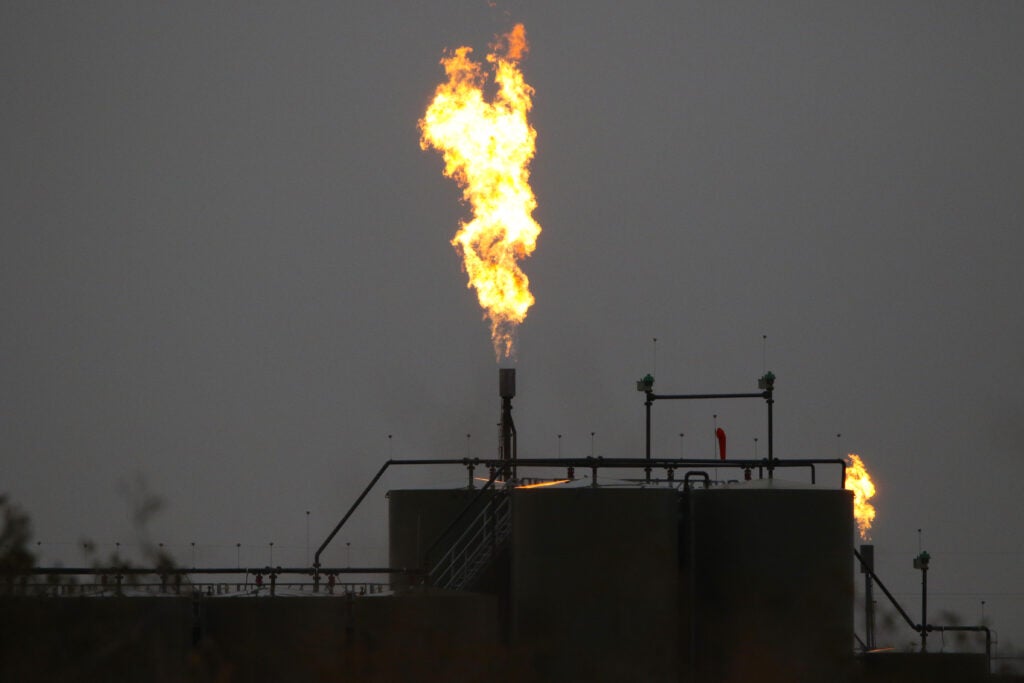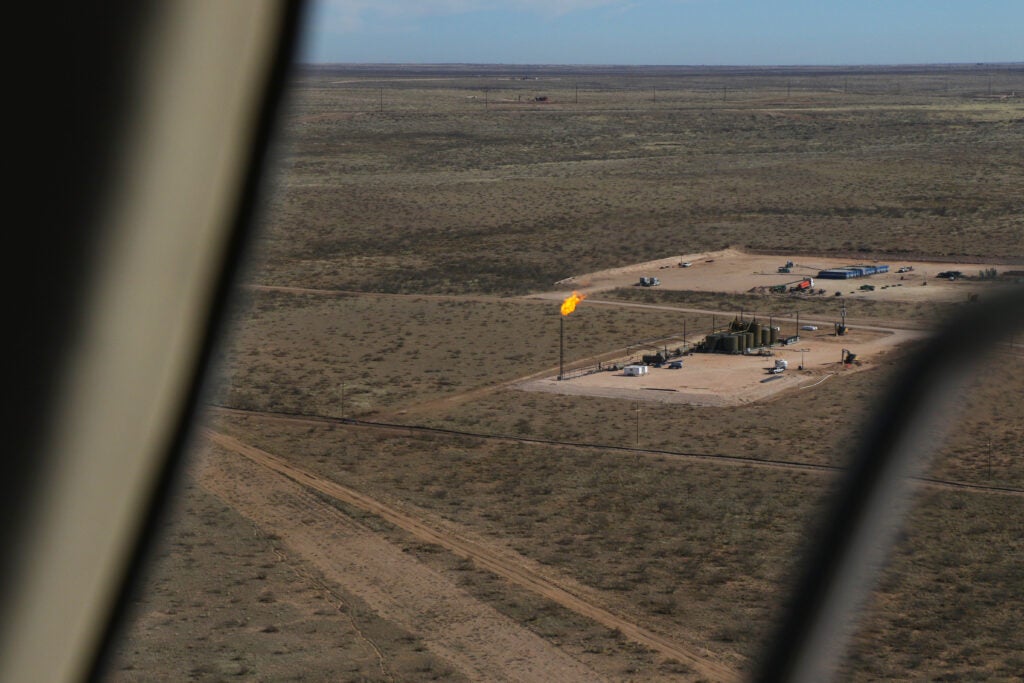Texas’ primary oil and gas regulator, the Texas Railroad Commission, took the unfortunate — though not surprising — step last month of requesting legal action against EPA’s recently finalized commonsense methane rules. This is unfortunate because, once implemented, these rules will protect public health, limit climate change and energy waste. It is not surprising because the RRC (Texas’ oddly named oil and gas regulatory agency) has shown little interest in trying to rein in Texas’ massive problem with oil and gas methane pollution. Texas emits more oil and gas methane pollution than any other state. Despite repeated calls for more oversight from the state agency, the RRC continues to regularly approve permits to flare natural gas, a leading cause of methane pollution.
But we aren’t the only ones who likely see misfortune in the RRC’s misguided action. The Texas oil and gas industry itself also has a tremendous amount to lose by a delay in implementing federal methane requirements. These requirements will help the Texas oil and gas industry show its work and maintain access to markets increasingly demanding cleaner energy. Meanwhile, swift implementation of these rules will also reduce oil and gas operator liability under the new Methane Emissions Reduction Program charge on wasteful methane emissions.
Why Texas’ attempt to delay commonsense methane protections will only shoot itself – and the US oil and gas industry – in the foot. Share on XA Texas-sized methane problem.
No state has more to gain from acting on oil and gas methane waste and pollution than Texas. Methane is a greenhouse gas more than 80 times more powerful than carbon dioxide in the near term and is responsible for at least a quarter of today’s global warming. The air pollution emitted from oil and gas wells is also a huge public health issue in Texas and across the U.S.— responsible for $77 billion in total health impacts nationally as well as 73.8 deaths per million and 17,600 asthma exacerbations among children per million in Texas.
It is also a huge source of wasted energy. In 2022 alone, Texas oil and gas operators wasted $490 million worth of natural gas just through flaring, costing taxpayers $37 million in revenue. This lost funding could support Texas’ education system, Rainy Day Fund and the state Highway Fund. Instead, methane and air pollution are released into the atmosphere, harming our climate and hurting public health. Instead of taking meaningful action to end wasteful routine flaring, the RRC has opted for half-measures and continues to rubberstamp flaring applications. Thankfully, EPA finalized strong standards to limit the practice at existing wells and eventually phase it out at new wells.
Creating Texas jobs and keeping Texas energy competitive.
The methane mitigation industry is a multi-million-dollar industry that employs thousands of people across the country and is poised to grow with stronger methane regulations in place. Investing in methane mitigation creates jobs and reduces product waste, creating valuable economic stimulation in local communities.
According to Datu Research, the sector already has a nationally leading 55 locations across Texas, manufacturing products and providing services to help operators curtail emissions. The methane mitigation industry provides family-sustaining jobs that typically pay ten percent more than the federal average and can’t be offshored. Over 75 percent of methane mitigation companies say they would create more jobs with strengthened methane emission standards in place.
Energy customers and investors around the world are also signaling that climate performance will be a key consideration in market decisions. Moving forward with pollution reduction actions will assist Texas operators in accessing markets that demand cleaner energy.
Unlocking the regulatory compliance exemption for operators with Waste Emissions Charge obligations.
In case the public health, climate, job creation and market competitiveness benefits are not encouragement enough, the Methane Emissions Reduction Program’s Waste Emissions Charge adds an extra incentive for Texas and other states to implement the methane rules quickly.
As part of the Inflation Reduction Act’s Methane Emissions Reduction Program, Congress directed EPA to assess a charge on excessive methane pollution from the oil and gas industry’s largest emitters. EPA has recently proposed rules for how it will administer this charge, including how operators should calculate and pay applicable charges and how Congress’ targeted exemptions will be applied.
One such exemption was designed to complement and reinforce EPA’s methane rules: once EPA’s methane standards are in effect, operators who are subject to and comply with the standards will be exempt from paying the waste emissions charge. Consistent with the language of the statute, EPA is proposing that this regulatory compliance exemption will become available when state plans (or a federal plan for states who don’t create their own) to implement the rules are in effect in all states. This provision incentivizes states to move promptly in adopting state plans to achieve meaningful emissions reductions. If one or a collection of states drags out this process, oil and gas operators subject to the Waste Emissions Charge in their states — and nationwide — will have to pay the price for the delay.
For all these reasons, the Texas RRC’s recent decision to attempt to delay implementation of commonsense oil and gas methane requirements is a massive unforced error that will negatively impact the health and climate of Texans as well as our energy and economic competitiveness. Texans broadly support regulating methane emissions from the oil and gas industry, as demonstrated by a July 2023 poll that found 66 percent of Texas voters supported EPA taking action to cut methane. EPA’s methane rules enjoy a broad array of support from diverse stakeholders, including public health, environmental justice, conservation, taxpayer, faith groups and even oil and gas companies with operations in the state.
Moving forward, we call on the RRC to heed the overwhelming will of their constituents and partner with the Texas Commission on Environmental Quality to quickly implement protections under the methane standards that make so much health, climate, and economic sense.











